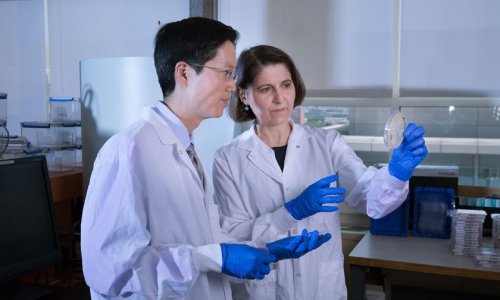The first International Centre of Excellence in Infection Prevention
Hospital infection control specialists from across Europe, the Middle East and Africa are travelling to Liverpool to learn how an English hospital Trust has become a world leader in infection prevention and control, Mark Nicholls reports

Infection prevention at the Royal Liverpool and Broadgreen University Hospitals NHS Trust (RLBUHT) has been highlighted with its naming as the world’s first International Centre of Excellence in Infection Prevention by Advanced Sterilization Products (ASP), a member of the Johnson & Johnson Family of Companies.
The accolade follows a reduction of over 80.5% in C. difficile infections from April 2008 to March 2011 and an 86% reduction in hospital acquired MRSA cases with savings in the region of £2.3m (€2.85m), taking it from one of the poorest to one of the best performing health organisations in England in terms of infection control.
Deputy Director of Nursing Sue Redfern said the award reflects the hard work and investment throughout the organisation over the past four years. ‘We’ve reduced our infection rates through strong team work and are now looking to share our best practice but still continue to learn from other centres as well.’ RLBUHT has 870 beds across three sites with about 982 medical staff, 1,660 qualified nurses, 1,700 allied healthcare professionals and 1,700 support staff, and sees in excess of 60,000 inpatients a year and almost 570,000 outpatients with 100,000 A&E attendances.
Before November 2008, it had a poor record in terms of infection control and during an outbreak of Norovirus in 2007 lost 1,770 bed days in three months costing the Trust around £708,000. In a bid to address this, the Trust searched for new, innovative ways to replace the traditional manual processes, which had often resulted in incomplete cleaning.
In the USA, Mrs Redfern identified a process utilised by John Hopkins Medicine in Baltimore that partly attributed a reduction in hospital acquired infection rates to deep cleaning methods and area decontamination. The Trust invested in a hydrogen peroxide mist technology. This sprays out and thus disperses a low concentration mist to rapidly kill a multiple of infection-causing pathogens.
However, she stresses that the improved performance went much deeper than investment in technology – the environment, cleaning methods, culture and approach to infection control all changed with better education of staff and patients, improved hand hygiene and innovation, such as the introduction of an isolation unit for CDT and Norovirus cases, which very soon produced impressive results in containment.
She said the infection control team attends daily beds meetings; there is thorough reporting and monitoring of infections and potential outbreaks, greater emphasis on cleaning standards, the use of innovative decontamination solutions and close stewardship of antibiotic use at RLBUHT. The hospital has cut infection risk by reducing patient stay times, holding regular mattress audits and constantly re-evaluating protocols and procedures. It also reinvests any savings in its deep clean programme. From ASP, Rebecca Eldridge said: ‘The turnaround in infection rates at the Trust is one that clinical leaders globally should hear about.’
10.07.2012





